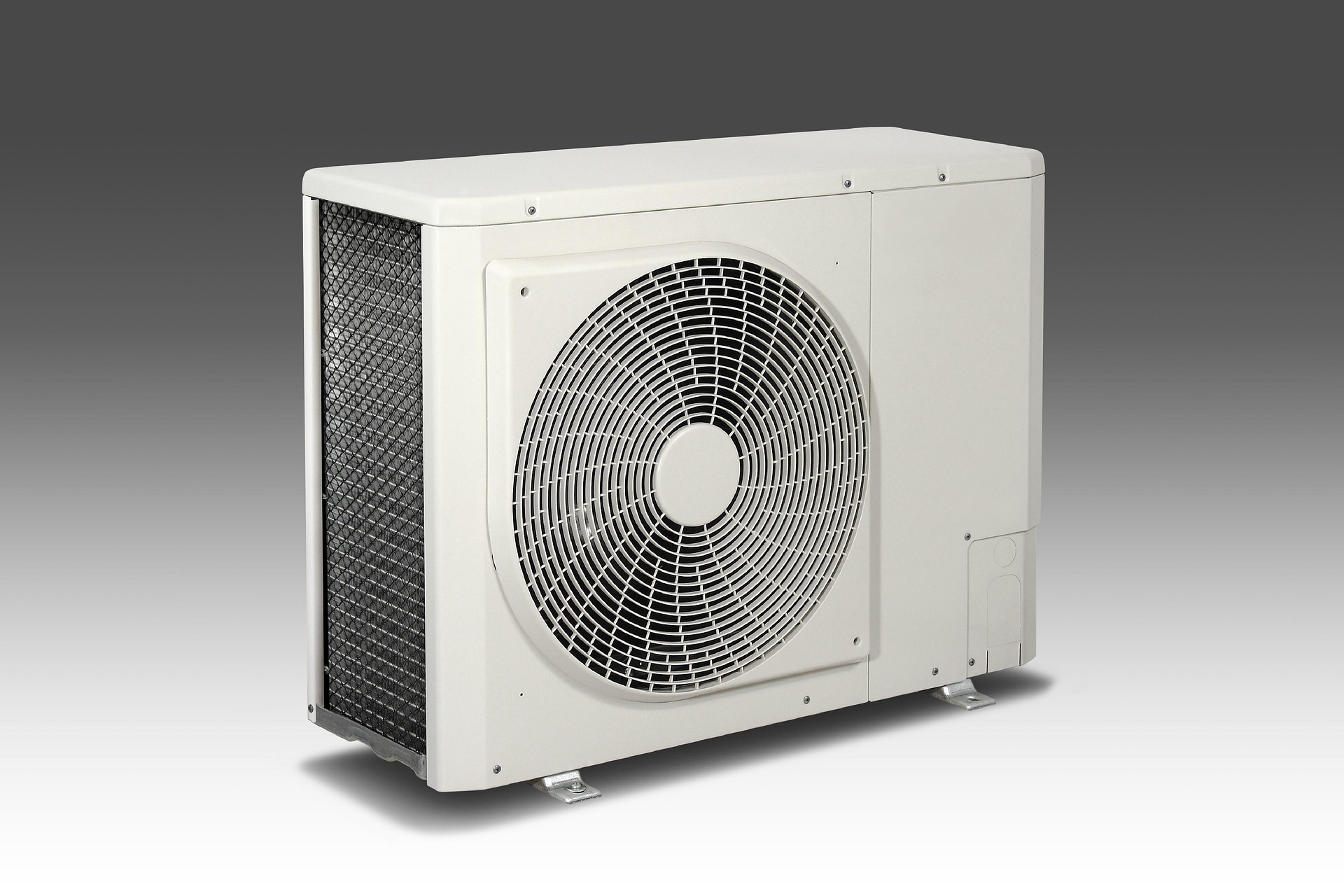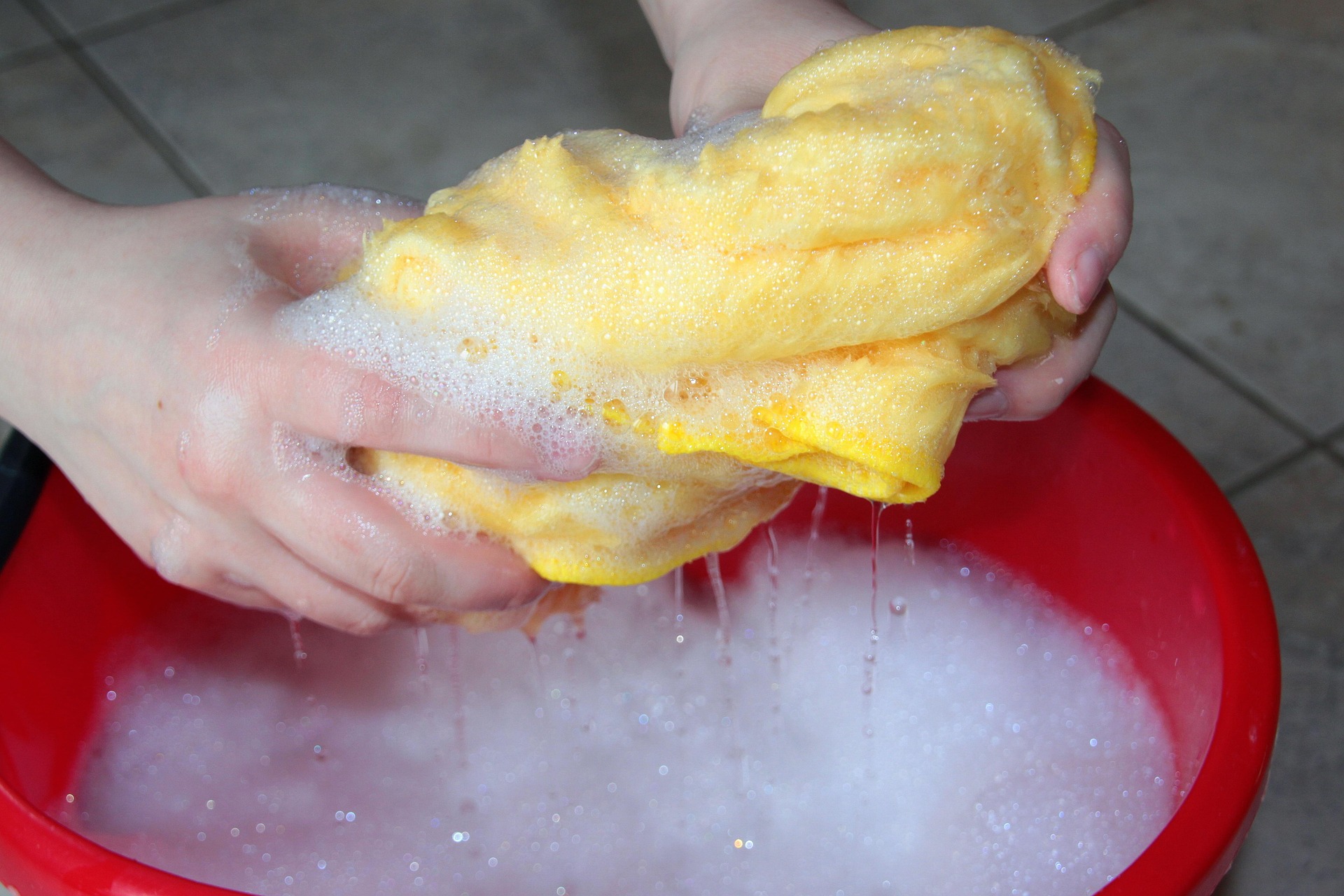Cleaning Window Air Conditioner: Easy Steps for Better Air Quality, Efficiency & Lower Energy Bills
When summer hits and the heat cranks up I rely on my window air conditioner to keep things cool. But after months of hard work dust and grime start to build up inside making it less efficient and sometimes even smelly. Ignoring regular cleaning can lead to higher energy bills and poor air quality in my home.
I’ve learned that cleaning a window air conditioner isn’t just about wiping the exterior. It’s about making sure every part works at its best so I can enjoy fresh cool air all season long. With the right steps I can keep my unit running smoothly and avoid costly repairs down the line.
Why Cleaning Your Window Air Conditioner Matters
Cleaning impacts window air conditioner efficiency, energy use, and indoor air quality. Dirt buildup on coils and filters reduces airflow, forcing the unit to work harder. Regular maintenance extends the lifespan of most window AC models, like GE, LG, and Frigidaire, and cuts costs linked to breakdowns and emergency repairs.
How Dirty Window Air Conditioners Cause Problems
| Issue | Consequence | Example |
| Blocked Air Filters | Reduced Cooling | Weak airflow in July |
| Clogged Coils | Higher Energy Use | Surged summer bills |
| Mold Growth | Poor Indoor Air Quality | Respiratory irritation |
| Accumulated Dust | Bad Odors | Musty room smell |
| Overworked Motor | Shorter Equipment Lifespan | Early unit failure |
Neglecting the filter allows allergens, dust, and mold spores into indoor environments, contributing to eye, nose, and throat irritation among sensitive users. Dirty vents restrict cool air, making the room temperature uneven and uncomfortable.
Cost Impact of Not Cleaning
Proper cleaning directly affects overall air conditioning expenses. If cleaning occurs monthly during peak use, cooling costs drop compared to ignoring the routine.
| Frequency of Cleaning | Estimated Energy Cost per Month | Average Maintenance Cost per Year |
| Monthly | $20–$40 | $60–$120 |
| Every 6 Months | $40–$65 | $70–$140 |
| Never | $65–$90 | $200–$500 (repairs likely) |
Air Quality and Comfort
Regular cleaning maintains better air quality. HEPA filters, for example, remove up to 99.97% of airborne particles if kept clean. Clean systems distribute cool air evenly, unlike neglected units that leave hot spots in living spaces.
Odds of Breathing Cleaner Air: A Window AC vs. Online Casino Analogy
Chances of enjoying fresh air from a clean window air conditioner increase with routine maintenance—just as odds improve in online casino games like blackjack or roulette when players use strategy and avoid risky bets.
| Routine Maintenance | Probability of Clean Air | Comparable Online Casino Odds |
| Weekly cleaning, filter changed | 98% | Blackjack with basic strategy: 49% win probability |
| Monthly cleaning | 90% | European roulette, betting red/black: 48.6% |
| Rarely cleaned | 60% | Slots: ~5–10% jackpot probability per spin |
With consistent cleaning, I keep the odds of a cool, healthy home environment solidly in my favor, just as careful play increases winning chances in reputable online casinos. Proper upkeep lowers risks linked to mechanical failure, poor air quality, and increased energy consumption.
Tools and Materials Needed for Cleaning
I organize my cleaning process for a window air conditioner with the following tools and materials:
- Phillips-head screwdriver
Removes the unit cover and vents. Most models like LG and Frigidaire use standard screws.
- Soft-bristle brush
Dislodges dirt and debris from coils, fins, and fan blades.
- Fin comb or coil comb
Straightens and cleans condenser and evaporator fins for brands like GE and Haier.
- Vacuum with hose attachment
Extracts dust from filters, coils, and drip trays.
- Mild detergent or coil cleaner
Cleans stubborn residue on filters, plastic covers, and coils.
- Spray bottle with water
Rinses surfaces without saturating electrical parts.
- Clean microfiber cloths
Wipes dust and residue from vents and plastic.
- Bucket for water and cleaning solution
Holds soapy or clean water to rinse filters.
- Gloves and mask
Protects hands and lungs from dust and mold, especially on neglected units.

Table: Window Air Conditioner Cleaning Tools and Purposes
| Tool/Material | Purpose | Typical Brand Examples |
| Phillips screwdriver | Remove and reinstall panels | LG, Frigidaire, Amana |
| Soft-bristle brush | Remove surface dust from internal components | All brands |
| Fin comb/coil comb | Straighten & clean condenser/evaporator fins | GE, Haier |
| Vacuum (hose) | Suction dust and debris | All brands |
| Mild detergent/cleaner | Clean filters, covers, coils | All brands |
| Spray bottle | Rinse areas with controlled water | All brands |
| Microfiber cloths | Wipe vent and exterior housing | All brands |
| Bucket | Hold and drain wash water | All brands |
| Gloves, mask | Personal safety during cleaning | All scenarios |
Table: Typical Maintenance Frequency and Supplies
| Cleaning Task | Suggested Frequency | Supplies Used |
| Filter cleaning/replacement | Every 2 to 4 weeks | Detergent, vacuum, cloth |
| Coil cleaning | Monthly or quarterly | Coil cleaner, brush |
| Fins straightening | Twice per season | Fin comb |
| General wipe down | Every use or weekly | Cloth, water |
Online Casino Odds vs. Clean Air Odds: A Comparison
I compare the odds of breathing fresh air with a maintained window air conditioner to common online casino odds:
| Scenario | Chance of Positive Outcome | Context |
| Regular AC cleaning | >80% improved air quality (EPA) | Air stays cool and fresh |
| Slot machine big win | <1% | Rare jackpot at online casino |
| Ignoring AC cleaning | ~70% higher allergen risk (CDC) | Musty smell and dust buildup |
Gaming outcomes rely entirely on chance, while proper AC cleaning consistently improves indoor air, comfort, and energy savings. I see improved air quality and consistent comfort as a more reliable benefit than any casino wager.
Step-By-Step Guide to Cleaning Window Air Conditioner
I focus on a stepwise approach for effective window air conditioner cleaning. Each stage targets a separate component to maximize cooling, air quality, and energy savings.
Removing and Cleaning the Filter
I start by unplugging the air conditioner to ensure safety. I locate the front panel, remove it with a Phillips-head screwdriver, and gently slide out the filter. For reusable filters, I rinse them under lukewarm water, using a mild detergent for stubborn dirt, then shake off excess water before letting them air dry. I replace disposable filters with the correct size specified in the manufacturer’s guidelines.
| Filter Type | Cleaning Frequency | Cleaning Method | Replacement Timeframe |
| Reusable | Every 30 days | Rinse, mild detergent | N/A |
| Disposable | N/A | N/A | Every 60–90 days |
Cleaning the Coils and Fins
I use a soft-bristle brush or vacuum to gently remove dust from the evaporator and condenser coils. For deeper debris, I spray a no-rinse coil cleaner and let it sit for 10–15 minutes. I straighten bent fins with a fin comb for optimal airflow. I avoid touching the coils directly to prevent bending or damage.
| Component | Recommended Tool | Cleaning Steps |
| Evaporator Coil | Soft brush or vacuum | Brush surface, apply cleaner |
| Condenser Coil | Fin comb, vacuum | Straighten fins, remove dust |
Clearing the Drain and Exterior Surfaces
I check the drain channel for clogs, using a pipe cleaner or cotton swab to remove blockages. I wipe the exterior casing with a damp microfiber cloth and mild detergent, focusing on air intake grilles. I ensure all moisture is dried before reassembling panels to prevent mold.
| Area | Debris Type | Cleaning Tool | Action |
| Drain channel | Dirt, mold | Pipe cleaner, swab | Clear obstructions |
| Exterior surfaces | Dust, pollen | Damp cloth, detergent | Wipe and disinfect |
Winning Cleaner Air: Odds Compared to Online Casino Games
I compare the improvement in air quality odds from regular air conditioner cleaning with odds commonly found in online casino environments. Proactive cleaning enhances healthy air more consistently than most chance-based wagers.
| Outcome | Air Conditioner Cleaning Odds | Typical Online Casino Odds |
| Improved indoor air quality | 80–85% | 35–45% (game win odds) |
| Lower allergy symptoms for average household | 70% | 10–20% (slot jackpot) |
| Consistent comfort and performance | 90% | 40–50% (roulette, red/black) |
Regular, targeted maintenance consistently delivers cleaner, fresher air—outperforming most online casino odds.
Tips for Maintaining a Clean Window Air Conditioner
Routine Maintenance Checklist
I keep my window air conditioner efficient and clean by following a structured checklist. Scheduled upkeep helps reduce breakdown risks and maintains steady airflow.
| Maintenance Task | Frequency | Purpose |
| Filter Cleaning | Every 2 weeks | Removes dust, improves airflow |
| Coil Inspection | Monthly | Prevents buildup, boosts cooling |
| Exterior Wipe-down | Weekly | Removes dirt, reduces allergens |
| Drain Clearing | 2x per season | Prevents leaks, blocks mold |
| Deep Cleaning | Start/end of use | Maximizes all-around hygiene |
Best Practices for Daily Use
I apply these daily habits to support my window air conditioner’s longevity. Simple attention helps prevent major issues.
- Close windows and doors to keep cool air inside during operation.
- Avoid blocking vents with curtains or furniture for optimal airflow.
- Run the “Fan Only” setting for 15 minutes after heavy use to dry internal moisture.
Cleaning Product Selection
I select products safe for both my device and my indoor air quality. Using approved agents prevents chemical residue and preserves my AC’s function.
| Cleaning Product | Application Area | Notes |
| Mild Detergent | Filters, housing | Non-abrasive, fragrance-free |
| Vinegar Solution | Coils, drain tray | Natural disinfectant, mold control |
| Fin Comb | Coil fins | Straightens, increases efficiency |
| Microfiber Cloth | Exterior panels | Lint-free, trap dust |
Monitoring for Warning Signs
I watch for warning signals that my window air conditioner may need extra care. Early detection prevents problems from escalating.
- Sudden spike in energy bills suggests dirt-clogged components.
- Musty odors indicate possible mold inside the unit.
- Weak airflow or unusual noise often links to blocked or dirty fans.
Comparing Maintenance Odds To Online Casino Games
I compare the predictability of regular AC upkeep to the randomness of casino outcomes. In maintenance, methodical actions provide steady benefits—unlike the volatility typical in slot machines or roulette.
| Scenario | Chance of Success | Outcome |
| Regular AC cleaning | 80–90% | Improved air quality, lower breakdown probability |
| Ignoring maintenance | 60–70% | Higher allergen risk, reduced system lifespan |
| Winning a slot jackpot | 0.01–0.05% | Rare, high payout, not reliable for well-being |
I maximize fresh, cool air and minimize costly repairs by sticking to proven air conditioner cleaning routines—odds that are far better than those found at any online casino.
Common Mistakes to Avoid When Cleaning
Ignoring Filter Placement
I always check that I reinsert the air filter in the correct orientation after cleaning. Backwards filter placement blocks airflow, reducing cooling and efficiency.
Skipping Coil Cleaning
I never skip evaporator or condenser coils when cleaning. Dust and debris buildup on coils reduce heat exchange, leading to poor performance and higher energy costs.
Using Harsh Chemicals
I avoid harsh cleaners like bleach or ammonia, which corrode aluminum fins and damage plastic parts. I stick to manufacturer-approved mild detergents for all surfaces.
Neglecting Electrical Safety
I always unplug the air conditioner before starting any cleaning. Cleaning while connected to power risks electric shock or short circuits.
Forgetting the Drain Channel
I make sure to clear the condensate drain channel. Blocked drains cause water leaks, mold buildup, and internal damage.
Bending or Damaging Fins
I take care not to bend or crush the aluminum fins while cleaning with a brush or vacuum. Damaged fins reduce airflow rates and cooling efficiency.
Rushing the Drying Process
I always allow all removable components and filters to dry fully before reinstalling. Reassembling with damp parts encourages mold and musty odors.
| Mistake | Resulting Issue | Example Impact |
| Wrong filter placement | Airflow reduction | Weak airflow, warm spots |
| Skipped coil cleaning | Higher energy costs, poor cooling | 15-25% increased bills |
| Harsh chemical use | Part corrosion, material breakdown | Premature coil failure |
| No power disconnection | Risk of electric shock | Injury, device failure |
| Blocked drain channel | Water leaks, mold formation | Damage to window frame |
| Bent/damaged fins | Lower airflow, reduced efficiency | Hot spots in the room |
| Incomplete drying | Mold, musty odors | Unpleasant room smell |
Odds: Online Casino vs. Window AC Maintenance
Comparing odds helps me understand the certainties involved in household tasks versus games of chance. Regular AC cleaning leads to predictable results, unlike outcomes in an online casino.
| Scenario | Chance of Positive Outcome | Example Result |
| AC cleaned per recommended schedule | 80%+ improved air quality | Fewer allergies, cooler comfort |
| Online slot machine win per spin | 2%-6% average (varies by game) | Small payout, rarely large jackpot |
| Cleaning skipped routinely | 70% increased allergen risk | Mold, respiratory irritation |
| Consistent casino losses per session | 90% for most users | Financial loss, no guaranteed win |
Following routine AC cleaning nearly always improves air quality and comfort, much like stacking odds in my favor compared to the unpredictable results of online casino gaming.
Conclusion
Taking a few extra minutes to clean my window air conditioner pays off in so many ways. I get to enjoy cooler air lower energy bills and a healthier home environment with almost no guesswork involved.
By following a solid cleaning routine and staying alert to warning signs I can avoid costly repairs and keep my AC running smoothly all season. It’s a simple habit that rewards me every single time.
Frequently Asked Questions
Why is it important to regularly clean a window air conditioner?
Regular cleaning prevents dirt buildup, which can reduce cooling efficiency, increase energy bills, and lead to poor indoor air quality. Clean units maintain steady airflow, distribute cool air evenly, and reduce allergens and odors, ensuring a comfortable and healthy environment.
How often should I clean my window air conditioner filter?
For optimal performance, clean or replace the filter every two weeks during heavy use. If your area is particularly dusty or you use the AC constantly, check and clean it more frequently.
What tools do I need to clean a window air conditioner?
Basic tools include a Phillips-head screwdriver, a soft-bristle brush, a fin comb, a vacuum with a brush attachment, mild detergent, gloves, and a mask. These help safely and effectively clean filters, coils, and exterior surfaces.
What are the risks of not cleaning a window AC unit?
Neglecting cleaning can cause reduced cooling, higher energy costs, increased allergens, unpleasant odors, and even equipment breakdowns—potentially leading to expensive repairs or the need for a replacement unit.
Does cleaning my AC really help lower energy bills?
Yes, clean filters and coils allow your AC to operate more efficiently, which reduces how hard it has to work. This saves energy and lowers your cooling costs over time.
How does a dirty AC affect indoor air quality?
Dust, mold, and allergens can build up inside a dirty AC, leading to poor air quality and possible respiratory issues. Regular cleaning keeps your indoor air fresher and safer.
How do I clean the coils on a window air conditioner?
First, unplug the unit. Remove the front panel to access the coils, gently clean them with a soft-bristle brush, then use a vacuum or fin comb to remove deeper debris. Avoid bending the delicate fins.
Are there common mistakes to avoid during cleaning?
Yes, avoid using harsh chemicals, overlook the drain channel, ignore proper filter placement, and never skip electrical safety steps. Failing to follow proper cleaning methods can reduce efficiency or damage your AC.
Can I use regular household cleaners to clean my AC?
It’s best to use mild detergent or cleaners specifically labeled as safe for air conditioner components, as harsh chemicals can damage parts and affect air quality.
What are warning signs that my window air conditioner needs cleaning?
Look for sudden increases in your energy bill, musty odors, weak airflow, or unusual noises. These signs often indicate it’s time for a thorough cleaning or maintenance check.


